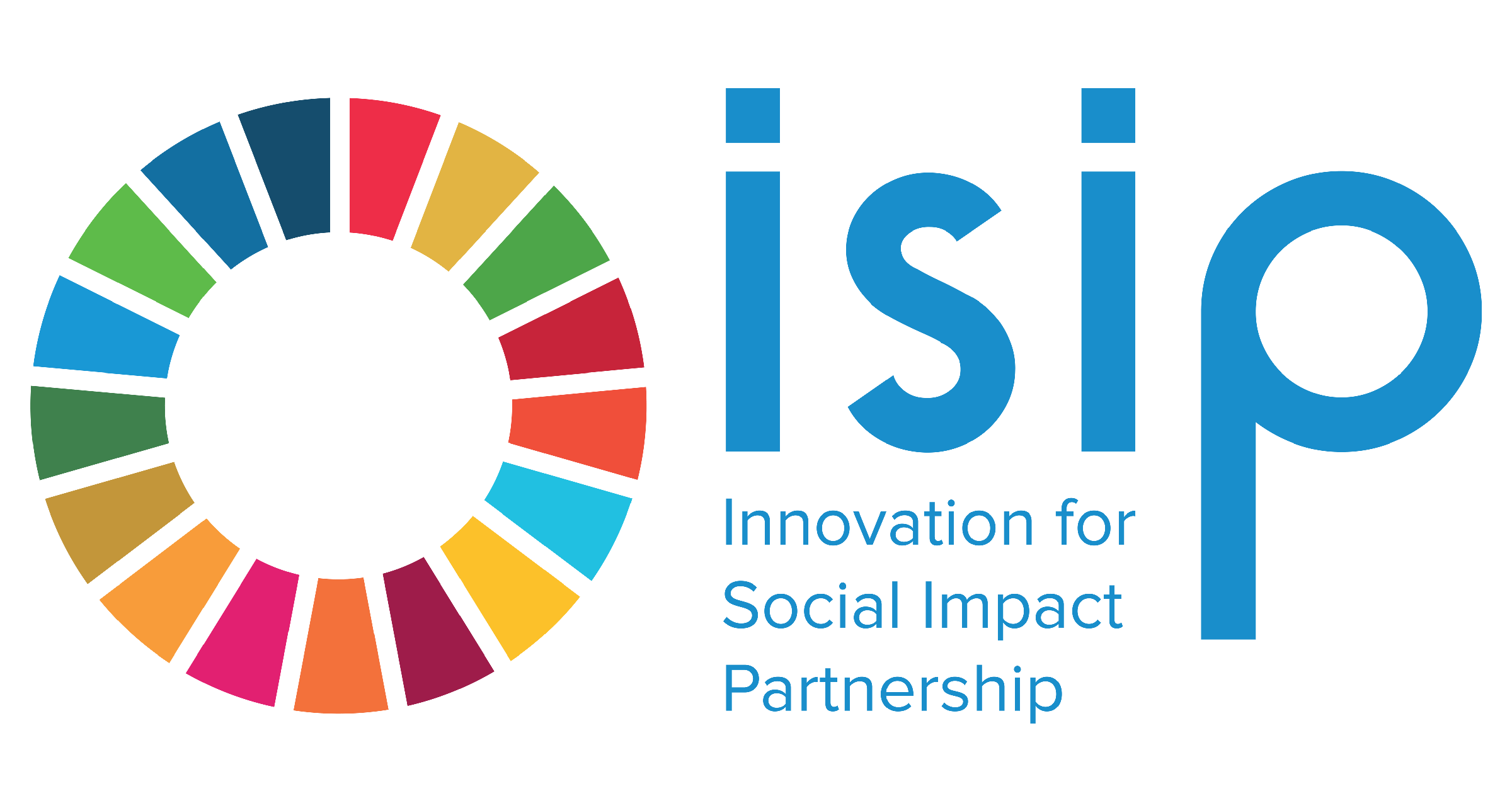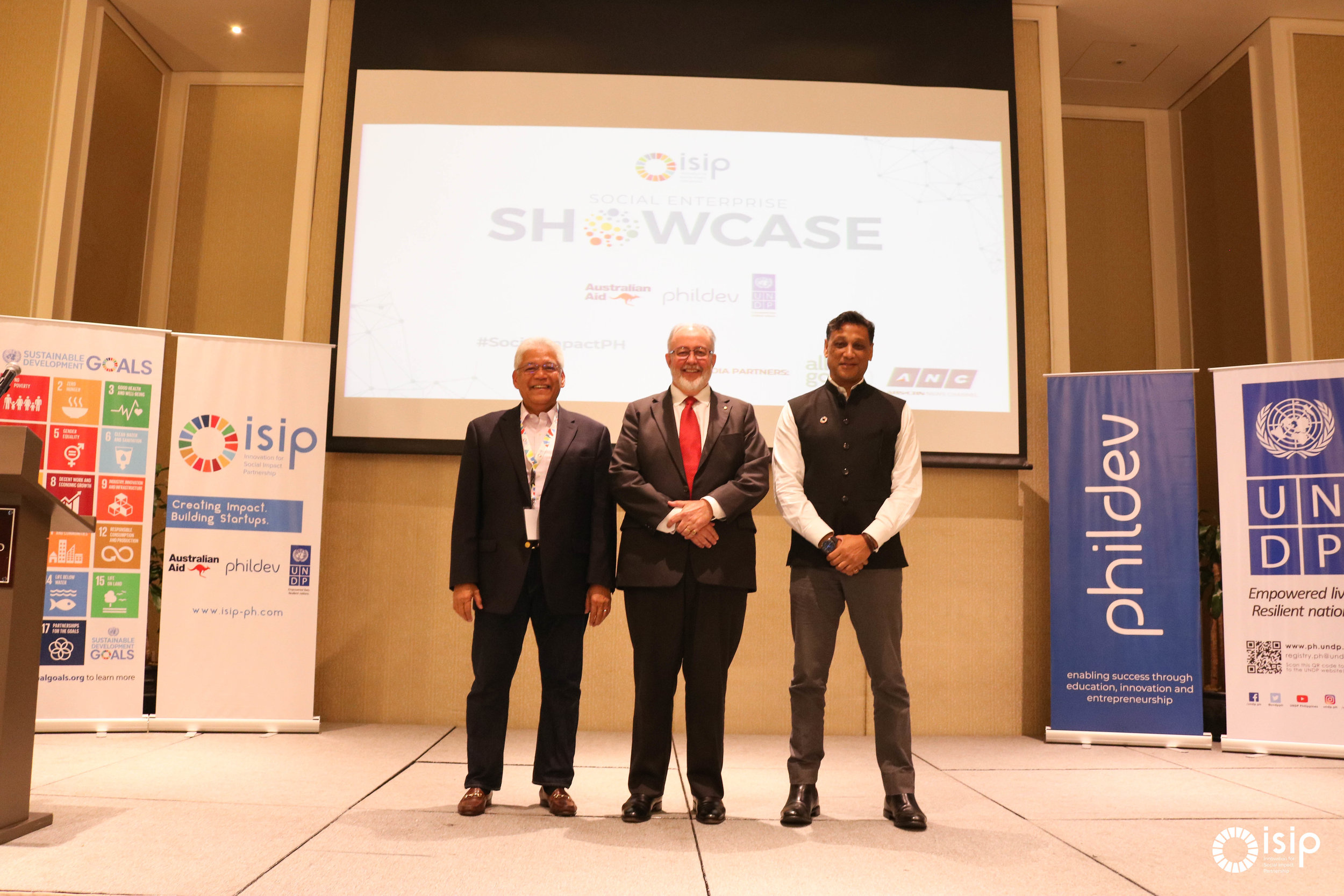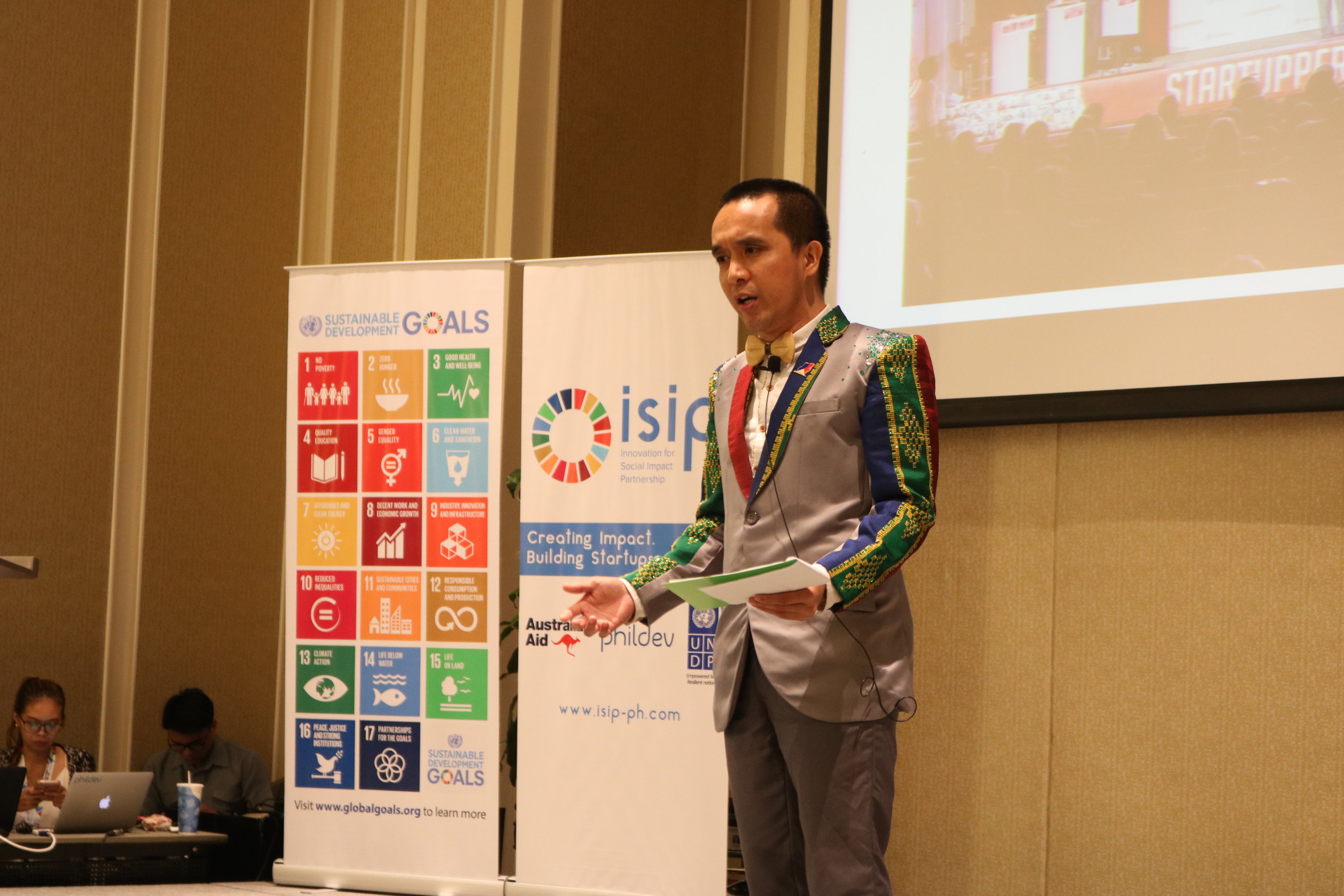Effective Tips to Make It through Demo Day From Founders Who Experienced It
by Marielle Bordado
A Demo Day gives social enterprises (SEs) the opportunity to pitch and connect with investors and funders, with the goal of securing funding and creating networks and potential partnerships. In other words, the Demo Day is a crucial day for any SE.
The ISIP Social Enterprise Showcase serves as the Demo Day for the SEs of the Social Impact Accelerator Batch 1. It is the culmination of the six-month intensive acceleration program. It serves as moving up ceremony where SEs also showcase their growth within the past six months in the accelerator.
On May 10, all ten (10) SEs pitched to potential impact investors, creditors, and funders. The leaders of the implementing organizations (Australian Embassy, UNDP Philippines, and PhilDev Foundation), and members of the local social enterprise community were also present during the event.
The event was attended by various local and international investors, creditors, funders, and SE supporters, including Manila Angel Investors Network (MAIN), Aboitiz Power, Acudeen, ADB Ventures, ARQCapital, Capital4Development Partners, Carmenta Funds, Grameen Australia Philippines, ICCP Ventures, Investing in Women, LGT Impact, Morningtide Capital Partners, Ignite Impact Fund, CORE Capital, Land Bank of the Philippines, Spark Project, Villgro Philippines, xchange, and the Department of Trade and Industry.
Leaders of the implementing organizations at the SE Showcase 2019: Jones Castro, PhilDev Executive Vice Chairman; Steven Robinson, AO, Australian Ambassador to the Philippines; and Titon Mitra, UNDP Philippines Resident Representative
As a social entrepreneur, how do you make it through one of the most important days, which can set the future of your business? Here are some tips from the SEs themselves which will not only help refine your pitch but make Demo Day a walk in the park for you. No need to be anxious about Demo Day ‘cause we’ve got you covered.
Make your pitch concise but substantial
Most of the SEs who pitch during Demo Day would like to share as much as they can about their company and the work that they are doing. While this would be ideal, most demo day pitches have set time limits. Investors usually have to sit through an entire day listening to various pitches, so it would be really appreciated if you can focus on the more important information to share with them.
Hiraya Water started with a general deck of 60 slides which they eventually trimmed down to fit the five-minute presentation
“It’s just five minutes so there’s just so much you can convey, so focus on what goals do they share with us. Focus on the essence of your startup. Don’t over explain because there’s another venue for that. Give a brief overview of your targets and of course, your call to action” -Stephen Larcia, Hiraya Water
“When we prepare for Demo Day, we really exert time and effort on building our deck. We want it to be a showcase of our progress. If you want to attract investors, you have to make sure that your presentation makes an impact.” -Oskie King, Cleaning Lady
Oskie and his co-founder Frances Feliciano presented the pitch of Cleaning Lady during the SE Showcase.
Be relatable and engaging
Just like the other SEs, Joji Pantoja of Coffee for Peace also worked hard on refining her pitch presentation. Joji also wanted to engage the audiences during her pitch. She started her pitch by asking the audience “Do you like coffee? Do you like good coffee?” Her opening spiel proved to be an effective icebreaker and a way to connect with the audience.
“I felt good about the final presentation. I think I captured the audience’s attention” - Joji Pantoja, Coffee for Peace
Hiraya on the other hand, had a different strategy in making their presentation more relatable.
“I added some context like the current water crisis to make it more relatable. I realized that our general slide deck could be too technical” -Stephen Larcia of Hiraya Water
Know your social enterprise
Knowing your SE well is the most important thing whenever you pitch. The main challenge during demo day is to effectively convey and capture exactly what your company is doing.
“Be clear about who you are, what you want, and what you’re trying to do. If you know what you’re doing and what you’re about, then people will see it,” -Raffy Concepcion, SolarSolutions
“Be true to the mission. Stick to the mission of your company, on what you are trying to address. It could be poverty, climate change etc. It’s not all about money. As you grow, remember what your company’s mission is,” -Mark Gersava, Bambuhay
“Clarify your purpose as a social enterprise. If you can identify the parameters that investors consider, then you can align your strategy to that,” - Zes Martinez II, FAME.
“Just believe in your enterprise and what it can do for others. At the end of the day, public service is everybody’s work. Just believe that they can change lives, they can help people,”-Doreen Gersava, Virtualahan.
Be open-minded
Part of attending a Demo Day and generally being part of an accelerator or incubator program includes getting input and feedback from various mentors, experts, and industry leaders. When you go to a Demo Day, be open to suggestions and possible new strategies. These may prove to be very helpful in shaping business decisions and deciding the future direction of your company. Don’t be afraid to embrace change. Sometimes, it takes one to unlearn things for more learning to take place.
“During the last pitch practice, we finally decided on which direction to take. We realized that our existing business model is a bit stagnant and has slower trajectory in terms of growth. We felt it was high time to take this risk and take Cleaning Lady to the next level,” -Oskie King, Cleaning Lady.
“Be open to all types of possibilities, all types of lessons and improvements for your business,” -Yvonne Manalo, Taxumo.
We prepared through numerous lengthy discussions with our mentors (Jones Castro and Jennie Alcabao) and the ISIP team on what to prioritize during the presentation and how to better communicate our value proposition. -Matthew Par, Gaz Lite
Show facts and figures
While it’s important to tell investors about what you are doing, numbers and evidence would also help a lot, especially in articulating the current state and the growth trajectory of your company. It’s very important to present evidence to make your presentation more convincing and credible.
“We tried to do as much so that we can present real content. We wanted to present customer conversions. It’s all about content for us. We wanted to present what was actually happening,” -Stephen, Hiraya Water.
“We looked at our financial reports to include in our presentation so that people would see the impact that we have now and we’re trying to target in the next few years,” -Yvonne Manalo, Taxumo.
Practice! Practice! Practice!
Lastly, in any Demo Day or Pitch Competition, it helps to practice a lot. Doing your pitch over and over again does not only help familiarize you with your presentation, but it also helps refine it.
“Before the Demo Day I attended a lot of Pitching Competitions. In the days leading to the ISIP Demo Day, I just stayed home and kept practicing. I really prepared for it. Most of the content of my deck, I had to revise. It’s because of the mentorship from the SIA.” -Mark Gersava, Bambuhay.
“I attended the coaching sessions and pitch practice. I listened to suggestions from the ISIP team and mentors. I tweaked my presentation to highlight the numbers and the social impact” -Robi Del Rosario, UPROOT.
“The pitch practice sessions were helpful in preparing us for the Demo Day. I attended the Pitch Karaoke Session before and had the chance to meet the ISIP project team who provided feedback,” -Raffy Concepcion, SolarSolutions.
—
Remember the Demo Day is not the end goal of your journey. Getting investments may be a bit challenging but bear in mind that Demo Day is not only for you to pitch to potential funders. It is also a venue to link with partners whom you can collaborate with in working towards the impact your SE is trying to achieve. After the Demo Day is over, the real work starts and the more important challenge of creating deeper connections with people you’ve networked with.
The Social Impact Accelerator is one the strategies of the Innovation for Social Impact Partnership (ISIP), a project co-implemented by UNDP Philippines and PhilDev Foundation, with generous support from the Australian Embassy in the Philippines.
Learn more about the SEs of the Social Impact Accelerator Batch 1 here.







